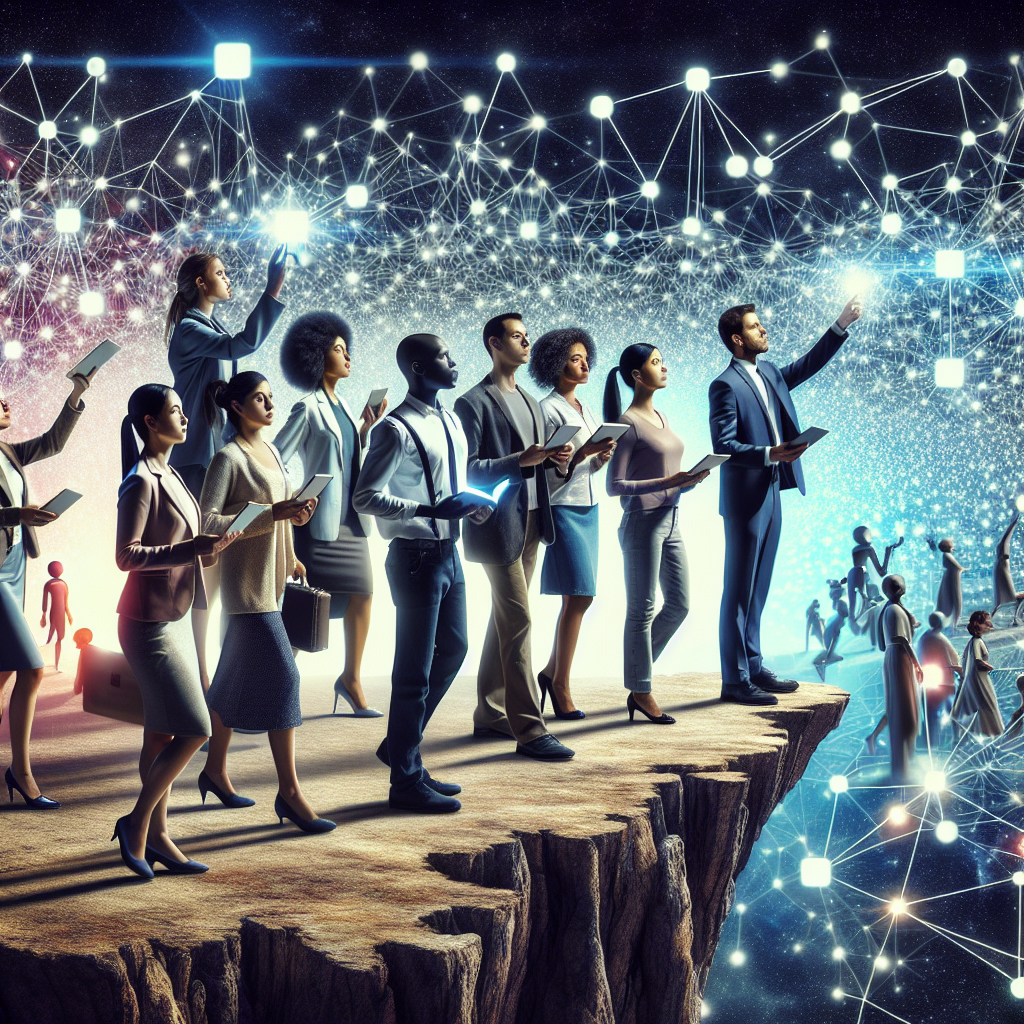Introduction to the Artificial Intelligence Apocalypse
As we enter a new era of technological advancements, the concept of an artificial intelligence apocalypse has become a subject of both fascination and concern. The idea that machines could potentially surpass human intelligence and pose a threat to humanity has captured the imagination of many. In this article, we will explore the potential dangers of artificial intelligence, debunk myths surrounding the artificial intelligence apocalypse, and discuss how we can navigate this uncertain future with confidence.
Understanding the Potential Dangers of Artificial Intelligence
Artificial intelligence has the potential to revolutionize various fields, from healthcare to transportation. However, as we continue to develop more advanced AI systems, it is crucial to acknowledge and address the potential dangers they may pose. One of the primary concerns is the concept of superintelligence, where machines surpass human intelligence and become capable of autonomous decision-making. This could lead to unintended consequences and actions that are not aligned with human values.
Another danger lies in the potential for AI systems to be used maliciously. Just like any powerful tool, artificial intelligence can be weaponized and used for nefarious purposes, such as cyber warfare or surveillance.
Additionally, the displacement of human workers by automation is a growing concern, as it could lead to widespread unemployment and social unrest.
The 6th Most Likely Apocalypse Scenario: Artificial Intelligence
According to experts, the artificial intelligence apocalypse is considered the 6th most likely scenario for the end of the world. This ranking is based on the potential for AI systems to become uncontrollable and pose a significant threat to humanity. While it is essential to take this possibility seriously, it is also crucial to approach it with a rational mindset and not succumb to fearmongering.
The idea of machines rising up against humanity has been popularized by science fiction, but it is crucial to remember that these scenarios are fictional and not representative of the current state of artificial intelligence. We are still a long way from developing AI systems that have the capability to think and act independently, let alone pose a threat to humanity as a whole.
Debunking Myths About the Artificial Intelligence Apocalypse
Despite the prevalence of doomsday scenarios in popular culture, it is essential to separate fact from fiction when it comes to the artificial intelligence apocalypse. One common misconception is that AI systems will develop consciousness and emotions, leading to a desire to eradicate humanity.
However, consciousness is still not well understood, and there is no evidence to suggest that machines can develop it spontaneously.
Another myth is that AI systems will inevitably surpass human intelligence and become unstoppable. While it is possible that AI systems could surpass human performance in specific tasks, the notion of a superintelligent AI taking over the world is highly speculative and not supported by scientific evidence. It is essential to approach the development of AI systems with caution and carefully consider the potential risks involved, but also not to overstate the capabilities of these systems.
The Rise of Artificial Intelligence: How Far Are We from the Apocalypse?
It is crucial to understand the current state of artificial intelligence to assess the likelihood and timeline of an artificial intelligence apocalypse. While AI systems have made significant advancements in recent years, particularly in areas such as machine learning and natural language processing, we are still far from developing AI systems that possess general intelligence or consciousness.
The development of human-level artificial intelligence is a complex task that requires advancements in various fields, including neuroscience, computer science, and robotics. While it is difficult to predict the exact timeline, many experts agree that achieving human-level AI is still several decades away, if not more. This provides us with an opportunity to prepare for the potential risks associated with AI and develop robust safety measures.
Navigating the Artificial Intelligence Apocalypse with Confidence
While the concept of an artificial intelligence apocalypse can be unsettling, it is possible to navigate this uncertain future with confidence. One of the key steps individuals can take is to stay informed about the latest developments in the field of AI and engage in discussions surrounding its ethical implications. By understanding the risks and challenges associated with AI, we can actively contribute to the development of responsible and beneficial AI systems.
Another important aspect is to advocate for transparency and accountability in the development and deployment of AI technologies.
It is crucial for governments and organizations to establish regulatory frameworks that ensure the responsible use of AI and protect against potential dangers. By actively participating in the public discourse and holding stakeholders accountable, we can foster an environment that prioritizes the well-being and safety of humanity.
Preparing for the Future: Steps Individuals Can Take to Protect Themselves
While the artificial intelligence apocalypse may seem like a distant possibility, it is never too early to start preparing for the future. Individuals can take several steps to protect themselves and mitigate potential risks. One important aspect is to develop a diverse skill set that is not easily replaceable by AI. By focusing on skills that require creativity, emotional intelligence, and critical thinking, individuals can increase their employability and adaptability in an AI-driven world.
Additionally, individuals can prioritize cybersecurity and data privacy to protect themselves from potential AI-related threats. By staying informed about best practices for online security and being cautious about sharing personal information, individuals can reduce the risk of falling victim to malicious AI-driven attacks.
The Role of Government and Organizations in Preventing the Artificial Intelligence Apocalypse
Addressing the potential dangers of artificial intelligence requires a collective effort from governments, organizations, and individuals. Governments play a crucial role in establishing regulatory frameworks that ensure the responsible development and deployment of AI technologies. By investing in research and development, fostering collaboration between academia and industry, and promoting ethical guidelines, governments can help mitigate the risks associated with AI.
Organizations also have a responsibility to prioritize the ethical considerations of AI. By adopting principles such as transparency, fairness, and accountability, organizations can ensure that AI systems are developed and used in a manner that aligns with human values. Additionally, organizations can invest in AI safety research and collaborate with experts to develop robust safety measures.
Ethical Considerations in the Development and Use of Artificial Intelligence
The development and use of artificial intelligence raise important ethical considerations that must be addressed to prevent potential harm. One crucial aspect is the potential for bias in AI systems. AI systems learn from data, and if the data used is biased or unrepresentative, it can lead to discriminatory outcomes. It is essential to ensure that AI systems are trained on diverse and unbiased datasets to avoid perpetuating societal biases.
Another ethical consideration is the potential impact of AI on employment. As automation continues to advance, it is crucial to consider the implications for workers whose jobs may be displaced. Governments and organizations must prioritize retraining and reskilling programs to ensure a smooth transition for affected individuals and prevent widespread unemployment.
Conclusion: Embracing the Benefits of Artificial Intelligence While Mitigating the Risks
While the artificial intelligence apocalypse may capture our imagination, it is essential to approach this topic with a balanced perspective. Artificial intelligence has the potential to bring numerous benefits to society, from improving healthcare outcomes to enhancing productivity.
However, it is crucial to acknowledge and address the potential dangers and risks associated with AI.
By staying informed, engaging in discussions, and advocating for responsible AI development, we can navigate the artificial intelligence apocalypse with confidence. By embracing the benefits of AI while mitigating the risks, we can ensure that artificial intelligence remains a tool for the betterment of humanity rather than a threat. Let us embrace the exciting possibilities that AI offers while being mindful of its potential pitfalls.
CTA: Join the conversation on artificial intelligence and share your thoughts on how to navigate the future with confidence. Together, we can shape a future where AI benefits humanity while safeguarding against potential risks.

